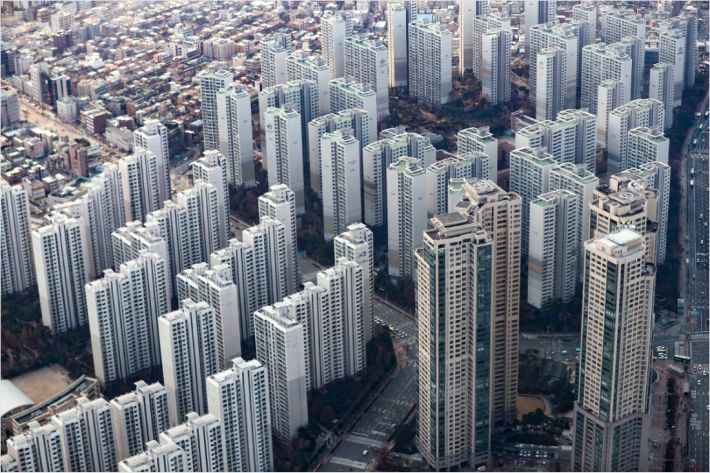Following the unexpected stringent mortgage control measures announced by the government last week, state agencies are also ramping up pressure to cool down the real estate market by conducting tax probes on individuals and even limiting the use of credit loans for buying houses.
The National Tax Service said Monday it will investigate 257 homeowners and track the source of their funds. They are suspected of having purchased expensive apartments with money transferred from parents and relatives, but instead reported the funds as loans from their families. South Korea has very hefty gift and inheritance taxes.
A separate batch of 531 home transactions is also under investigation for suspected tax evasion, according to the tax agency.
 |
(Yonhap) |
Under the government’s new guidelines, local commercial banks have also tightened their confirmation procedures so that clients do not use credit loans for buying property.
To curb rising housing prices in an overheated real estate market here, the government banned prospective homeowners from receiving mortgage loans for apartments priced 1.5 billion won ($1.28 million) or above since last week.
The unprecedented move came as prices rose rapidly on the back of low interest rates and a supply shortage of new apartments.
Experts here say the real estate market will enter into a correction phase for several months. In other words, housing prices are unlikely to decline in the short term.
“The new real estate policies are like a shock treatment. In the short term, the market won’t be able to fight off the government, however the reaction of consumers toward the regulations will lead the market change,” said Park Won-gab, a senior adviser for real estate at KB Kookmin Bank.
In addition to overheated speculative areas such as four districts in Gangnam and 11 districts in northern Seoul, Daegu and Sejong, housing prices in other regions will not be affected much by the intensified regulations, according to Park.
“As homeowners urgently put up their houses for sale, the prices will be adjusted. Especially houses with redevelopment and reconstruction plans will be more affected than new ones,” he said. “Overall, if money is not invested in the market, the new policies will affect housing prices.”
Despite the intensive regulations, housing prices will not decline anytime soon, Kwon Dae-jung, a professor of real estate studies at Myongji University, told The Korea Herald.
“Even though housing prices are expected to stabilize early next year, the regulations won’t lower housing prices in the short term. There won’t be a sudden plunge,” said Kwon.
He pointed out that the policymakers are misconstruing the market conditions.
“They believe that there is enough demand in the market, however that’s not true. The policymakers don’t understand the situation well,” he added.
By Jie Ye-eun (
yeeun@heraldcorp.com)








